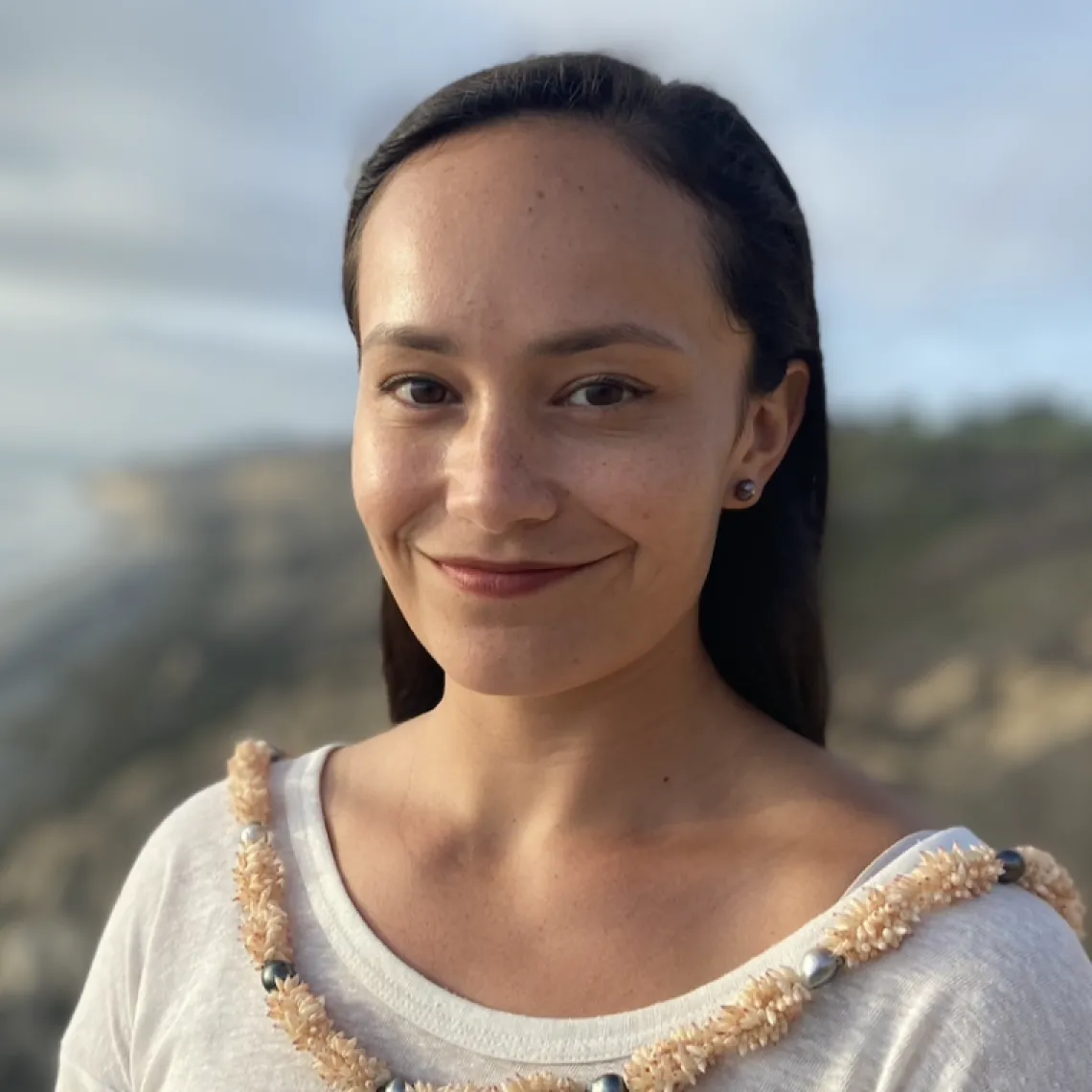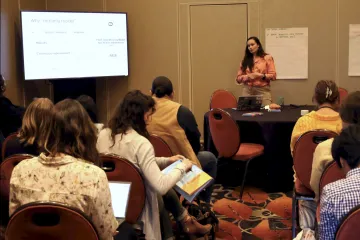Meet Dr. Taitingfong!

University of Arizona postdoc Dr. Riley Taitingfong has worked for the past year with the Native Nations Institute and Udall Center under the mentorship of Professor Stephanie Carroll, contributing to a world-wide effort for strengthening Indigenous data sovereignty. Dr. Taitingfong describes this topic as upholding Indigenous groups’ rights for self-determination through governance of data that relate to Indigenous lands, resources, and peoples. She works with an international community of colleagues to develop concrete guidelines for how data-holding entities (like libraries, universities, and governmental agencies) can uphold Indigenous rights over data.

Dr. Taitingfong presenting at the first U.S. Indigenous Data Sovereignty & Governance Summit, held this year on the Pascua Yaqui lands, which she helped organize.
Dr. Taitingfong and other UArizona researchers are building tools to implement the CARE Principles for Indigenous Data Governance (an acronym that represents Collective benefit, Authority to control, Responsibility, and Ethics). These principles provide a framework for data-holders to assess and improve their processes. The CARE Principles ensure that Indigenous groups control and benefit from data about their communities. This summer, Dr. Taitingfong will be mentoring a student intern to advance this project, the CARE Data Maturity Model, an assessment tool that universities, repositories, governmental agencies, and others can use to support their development of Indigenous data governance policy.
Dr. Taitingfong’s educational background is multidisciplinary and includes communication studies and science and technology studies. Her current work harmoniously blends her past experiences and knowledge, honing in on the topic of self-determination and her responsibilities as a Chamoru person (i.e., Indigenous to the Pacific island of Guam). One example of Dr. Taitingfong’s research in the area of self-determination can be seen in her advocacy to include Indigenous Peoples in United States territories (such as Puerto Rico and Guam) in conversations and actions for Indigenous Data Sovereignty. This inclusive definition of Indigenous Peoples was an important aspect of the Indigenous Data Sovereignty summit that she and other members of the Native Nations Institute organized in April. It was the first event of its kind in the United States and one of the largest in history, with almost 600 attendees, including Indigenous scholars, Tribal leaders, and data scientists. On the final day of the Summit, Riley co-hosted a roundtable discussion with Dr. Dominique David Chavez and Tai Pelli about building Indigenous Data Sovereignty in the US territories and in tribes that do not have federal or state recognition.
Dr. Taitingfong is inspired by institutions and governments that have successfully returned data to Indigenous groups and institutionalized Indigenous data governance. She is working ardently towards accomplishing that milestone in the US.
Read about the CARE Principles here: https://www.gida-global.org/care
Read about the 2024 Indigenous Data Sovereignty and Governance Summit here: https://udallcenter.arizona.edu/news/2024-us-indigenous-data-sovereignty-and-governance-summit
